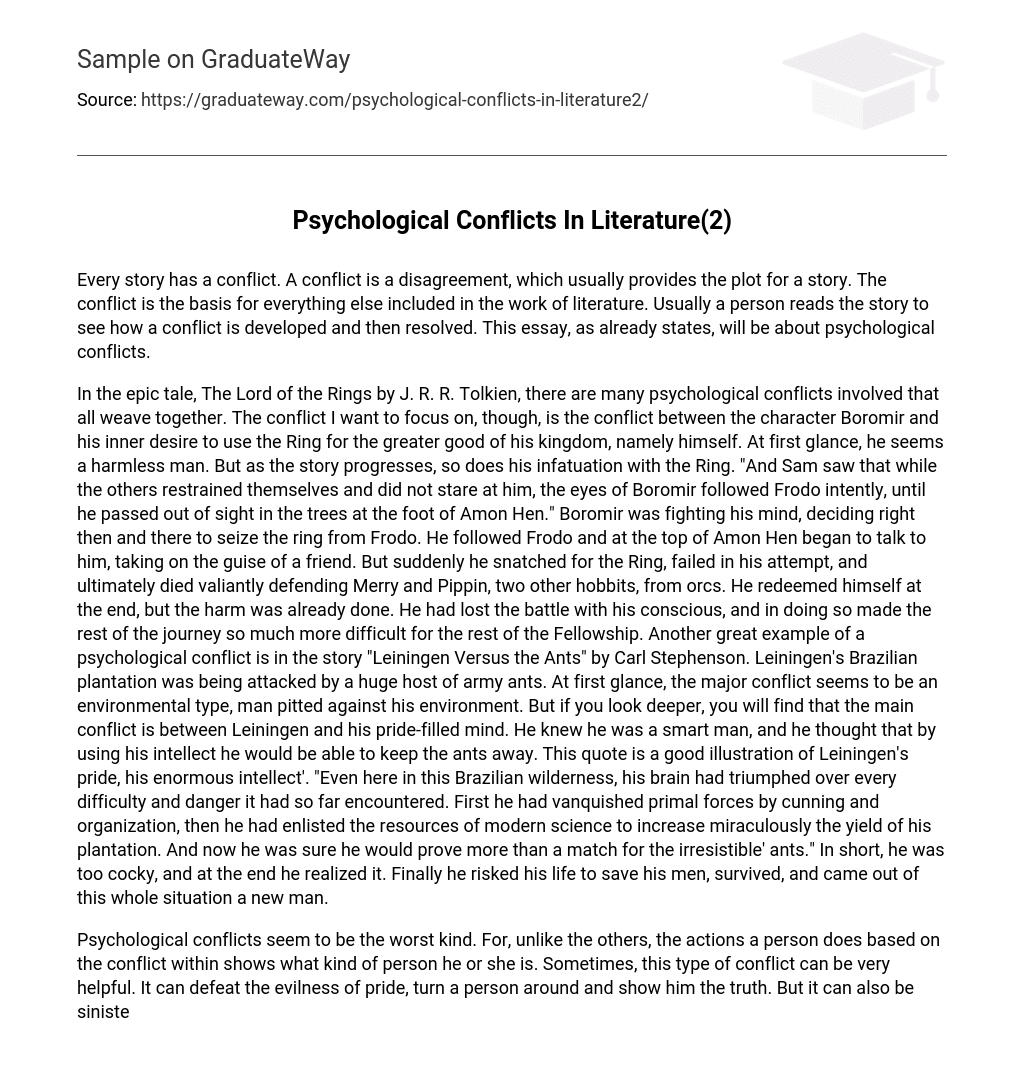In every story, there exists a conflict, which is essentially a disagreement. This conflict typically forms the basis for the plot of the story and serves as the driving force behind everything that unfolds within the literary work. Readers are often intrigued by how this conflict is both developed and ultimately resolved. The focus of this essay will specifically delve into psychological conflicts.
In the epic tale of The Lord of the Rings by J.R.R.Tolkien, one of the psychological conflicts that intertwine throughout is Boromir’s inner struggle. He desires to use the Ring for his kingdom’s betterment and personal gain. Initially, Boromir’s infatuation with the Ring may seem harmless but it grows over time. Sam notices how intensely Boromir’s eyes follow Frodo until he disappears from sight, revealing his obsession. This obsession leads Boromir to wrestle with his thoughts and ultimately decide to seize the Ring from Frodo. He approaches Frodo atop Amon Hen, pretending to be a friend before suddenly making a grab for the Ring. Although he fails in his attempt, Boromir bravely sacrifices himself in defense of Merry and Pippin against orcs. However, even though he redeems himself in the end, the damage has already been done as he had lost the battle within himself which complicates the rest of the Fellowship’s journey.
Another example of psychological conflict can be found in Carl Stephenson’s story “Leiningen Versus the Ants”. In this story, Leiningen faces a massive invasion of army ants on his plantation in Brazil. At first glance, it appears to be an environmental conflict where man is pitted against nature. Leiningen believes in his superior intellect and ability to outsmart these ants; however, it is his pride that becomes his main conflictDespite facing numerous challenges and hazards in the Brazilian wilderness, Leiningen successfully overcame them with his intelligence and organizational skills. Despite employing advanced scientific techniques to enhance his plantation’s productivity, he underestimated the relentless strength of the ants. This taught him a valuable lesson. In the end, he bravely endangered his own life for the sake of his men and managed to survive, emerging as a completely transformed individual.
Psychological conflicts are seen as the most difficult to face because they expose one’s true character through their actions. This internal struggle can be beneficial by helping individuals overcome arrogance and encourage self-reflection. However, it can also be dangerous as battling inner demons is a challenging task with uncertain outcomes. Despite thinking they have control over their thoughts, individuals do not truly possess this power. Manipulating the mind is a delicate process.





